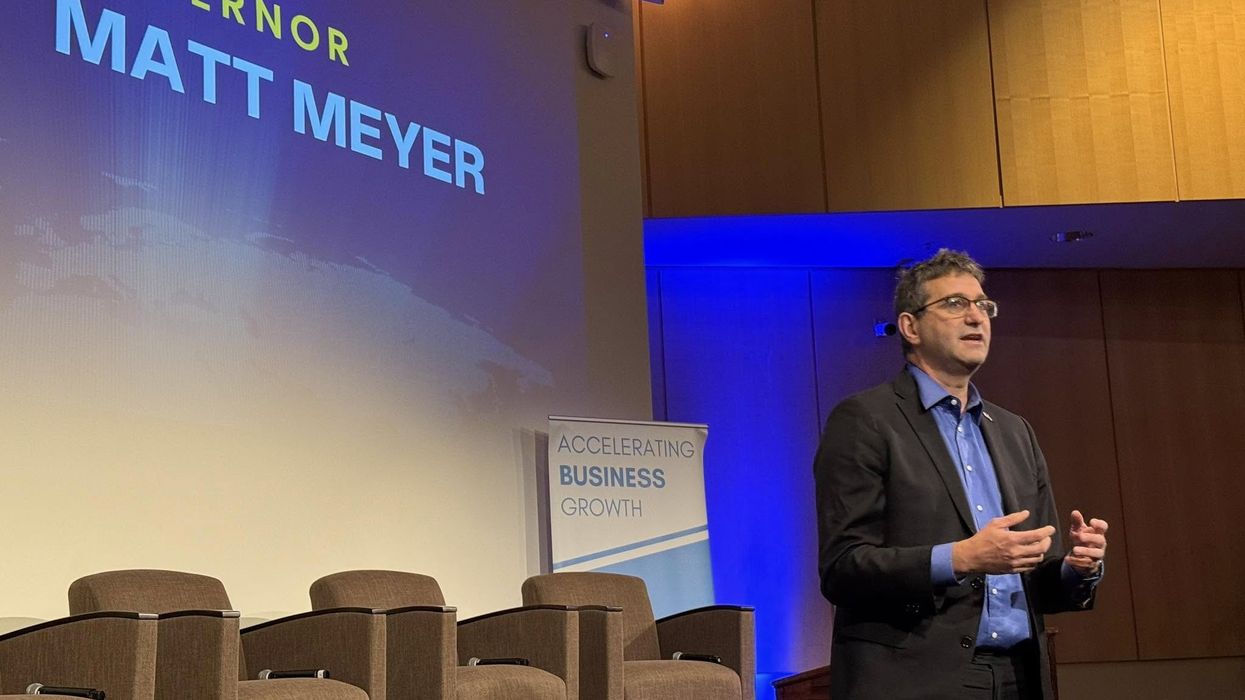CCR said Wednesday that Jennings "has neither responded" to the group's request "nor publicly addressed the serious claims raised against the Delaware-registered entity."
"GHF woefully fails to adhere to fundamental humanitarian principles of humanity, neutrality, impartiality, and independence and has proven to be an opportunistic and obsequious entity masquerading as a humanitarian organization," CCR asserted. "Since the start of its operations in late May, at least 1,400 Palestinians have died seeking aid, with at least 859 killed at or near GHF sites, which it operates in close coordination with the Israeli government and U.S. private military contractors."
One of those contractors, former U.S. Army Green Beret Col. Anthony Aguilar, quit his job and blew the whistle on what he said he saw while working at GHF aid sites.
"What I saw on the sites, around the sites, to and from the sites, can be described as nothing but war crimes, crimes against humanity, violations of international law," Aguilar told Democracy Now! host Amy Goodman earlier this month. "This is not hyperbole. This is not platitudes or drama. This is the truth... The sites were designed to lure, bait aid, and kill."
Israel Defense Forces officers and soldiers have admitted to receiving orders to open fire on Palestinian aid-seekers with live bullets and artillery rounds, even when the civilians posed no security threat.
"It is against this backdrop that [President Donald] Trump's State Department approved a $30 million United States Agency for International Development grant for GHF," CCR noted. "In so doing, the State Department exempted it from the audit usually required for new USAID grantees."
"It also waived mandatory counterterrorism and anti-fraud safeguards and overrode vetting mechanisms, including 58 internal objections to GHF's application," the group added. "The Center for Constitutional Rights has submitted a [Freedom of Information Act] request seeking information on the administration's funding of GHF."
CCR continued:
The letter to Jennings opens a new front in the effort to hold GHF accountable. The Center for Constitutional Rights letter provides extensive evidence that, far from alleviating suffering in Gaza, GHF is contributing to the forced displacement, illegal killing, and genocide of Palestinians, while serving as a fig leaf for Israel's continued denial of access to food and water. Given this, Jennings has not only the authority, but the obligation to investigate GHF to determine if it abused its charter by engaging in unlawful activity. She may then file suit with the Court of Chancery, which has the authority to revoke GHF's charter.
CCR's August 5 letter notes that Jennings has previously exercised such authority. In 2019, she filed suit to dissolve shell companies affiliated with former Trump campaign officials Paul Manafort and Richard Gates after they pleaded guilty to money laundering and other crimes.
"Attorney General Jennings has the power to significantly change the course of history and save lives by taking action to dissolve GHF," said CCR attorney Adina Marx-Arpadi. "We call on her to use her power to stop this dangerous entity that is masquerading as a charitable organization while furthering death and violence in Gaza, and to do so without delay."
CCR's request follows a call earlier this month by a group of United Nations experts for the "immediate dismantling" of GHF, as well as "holding it and its executives accountable and allowing experienced and humanitarian actors from the U.N. and civil society alike to take back the reins of managing and distributing lifesaving aid."




